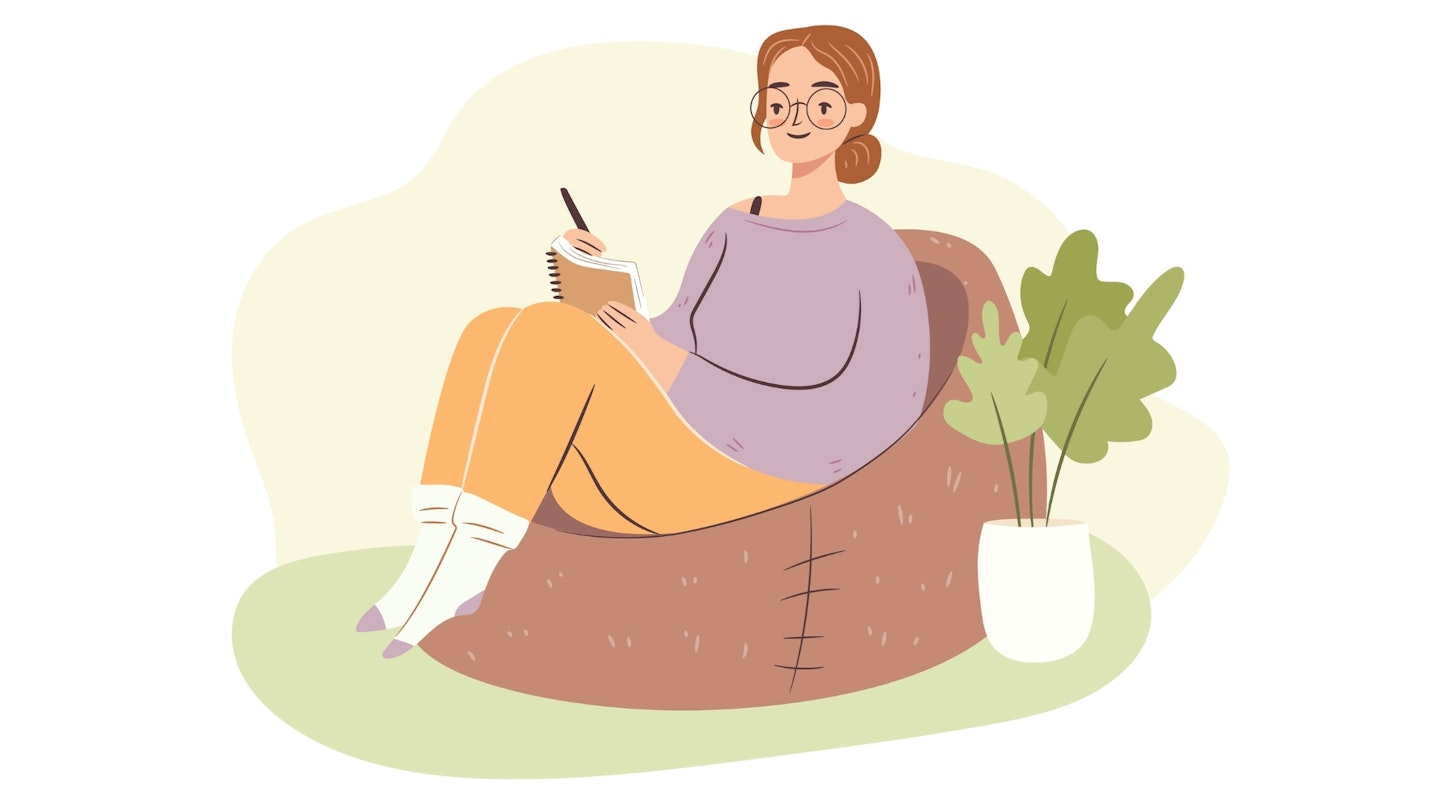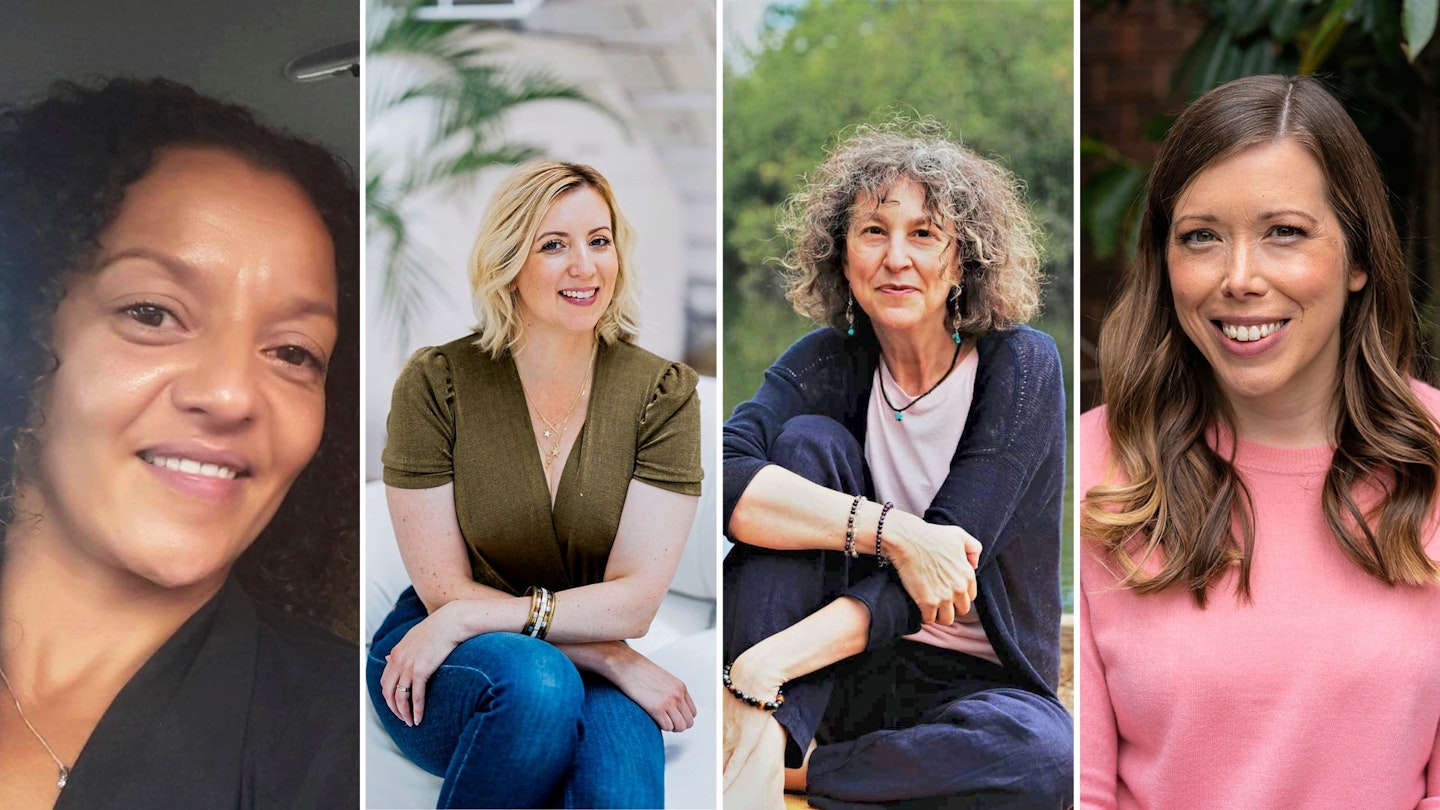Add a ‘mindful movement’ into your day
“Movement is a very positive way to manage anxiety,” says personal trainer and wellbeing expert Anna Rickett. “Getting your heart rate up changes the brain chemistry, increasing the availability of anti-anxiety neurochemicals such as serotonin. Movement is also proven to improve sleep, which has a massive impact on mood and energy levels.”
You don’t have to be fit to do it: it’s more about weaving in moments of movement. “Start with gentle stretching or mobility exercises while seated on the edge of your bed in the morning,” says Anna. “Think about your posture and your core: whether you’re sitting, standing, walking or doing something like the housework or gardening. Becoming more body aware gives your mind something else to focus on.”
For some of us, movement itself can bring anxiety. “Many people's anxiety is from not feeling confident in certain environments, due to disabilities or mobility issues,” Anna says. “Moving your body decreases muscle tension, which helps to relax your body. Doing functional exercises and movements that replicate day-to-day tasks will help to alleviate the anxiety surrounding those tasks.”
These movements could include sitting down and standing up, floor-to-ceiling reaches, standing on tiptoes and moving up and down stairs. “Any movement will improve mood, so even if it's a seat-based gentle movement, the effects will be positive,” says Anna.
Track your anxiety
Sometimes we don’t know ‘why’ we’re anxious, so keeping a track of our actions and circumstances can help to pinpoint anxiety triggers. “For managing low-level anxiety, keeping a daily journal can be really helpful,” says Nova Cobban, a psychotherapist and the founder of Positive Potential. Consider: “How many hours of sleep did you get? What have you eaten today? Did you get any exercise? Look at your alcohol and the caffeine intake, as well as anything that triggered you that day. This is where your emotional state has changed as a result of something that happened, like an interaction or a specific event.” Look at your social media use too. “Once you start to get a sense of: ‘Okay, there are the things that trigger my anxiety,’ you have more agency over being able to change them,” says Nova.
When anxiety gets too much:
“Using a tracking technique is more a way of managing symptoms than necessarily identifying the source,” says psychotherapist Nova Cobban. “If anxiety is stopping you from being able to participate in your normal daily activities, it’s best to see a professional.”
Build an anti-anxiety toolkit
“Anxiety is often linked to a fear of something happening in the future, so having a personalised toolkit is a great way to make you feel calmer and more in control of things,” says Nova. Does speaking in public leave you feeling dry mouthed and panicky? Have a bottle of water in your toolkit, or a photo of a loved one. “It could even be a little worry stone; a crystal or object you can physically touch and place your anxiety onto,” says Nova. “Just the act of externalising anxiety can be really helpful, and having a toolkit helps you to feel like you're armed and ready.”
Try a breathwork practice
Breathing is something we rarely think about but studies show that conscious breathwork can do wonders for stress and anxiety by calming down the body’s sympathetic ‘fight and flight’ response.
“When we’re anxious or stressed, a number of physiological things happen,” says yoga therapist and breathwork teacher Stacey Landau. “Our blood pressure rises, our heart beat increases and our breath becomes shallower and faster. It’s effectively our body's way of preparing for action and dealing with a perceived threat.” That threat doesn’t have to be very big, or even real. “If we look at our lifestyles today, most of us are doing too much,” says Stacey. “If we’re constantly stressed, we can get stuck in a perpetual cycle that is detrimental to our wellbeing.”
Hormones also play a large part. Progesterone has natural sedative and calming effects, and declining levels during the menopause can see us more prone to anxiety. “The good thing is that by consciously working with our breath, we can activate the parasympathetic part of our nervous system, often termed as ‘rest and digest’,” Stacey says. Movement with breath can also be a good option. “If someone is feeling stressed, their breathing may already be ‘below suboptimal’ but often combining simple movement with breath can be a great way to slow your breathing down,” says Stacey.
Try this:
-
Lie down or sit comfortably. Place one hand on your chest and one hand on your belly.
-
Gently breathe in and out through your nose, allowing the ribcage to expand and your belly to gently rise. Feel the retraction of your belly and your ribcage.
-
As you continue, try to lengthen the exhale so it becomes longer than the inhalation. This has a calming for your nervous system.
-
Start with six full breaths, aiming to practice for up to five minutes or more.

Start journalling
“Research has found that emotion-focused journalling can decrease anxiety and depressive symptoms and help us identify patterns, fears, and triggers that commonly overwhelm us,” says writing coach Steph Caswell. “Finding a few minutes each day to note down our thoughts and feelings can lower levels of the stress hormone cortisol and give us clarity in finding a way forward.”
Try this:
-
Write down one thing you’re feeling anxious about right now - big or small. Be as detailed as you can. What exactly about the situation is making you feel anxious?
-
Read through your notes – reflect back on when you’ve felt like this before, and note down what has helped you in the past. Again, be specific.
-
Pick two or three things from your list to help you manage the situation and feel in control. Finish by challenging yourself to think of one positive aspect of this experience.
“Once that situation has passed, reflect back in your journal,” says Steph. “Was it as bad as you thought it was going to be? What surprised you?”
Listen to birdsong
Birdsong has been proven to lower stress and anxiety levels. A National Trust study found that when it came to relaxation benefits, listening to birdsong was 30% more effective than a voiced meditation app. You don’t even have to be outside: another survey found that just listening to recordings of nature sounds can calm your nervous system. However, choose your birdsong wisely: sounds of birds like corvids and gulls were perceived as stressful!
Meet the experts

Anna Rickett is a personal trainer, see Rickett Fit Total Fitness on Facebook.
Nova Cobban is a psychotherapist and founder of Positive Potential®.
Stacey Landau is a yoga therapist and breathwork teacher.
Steph Caswell is an author, writing coach, host of the podcast Creating Happy Writers.
